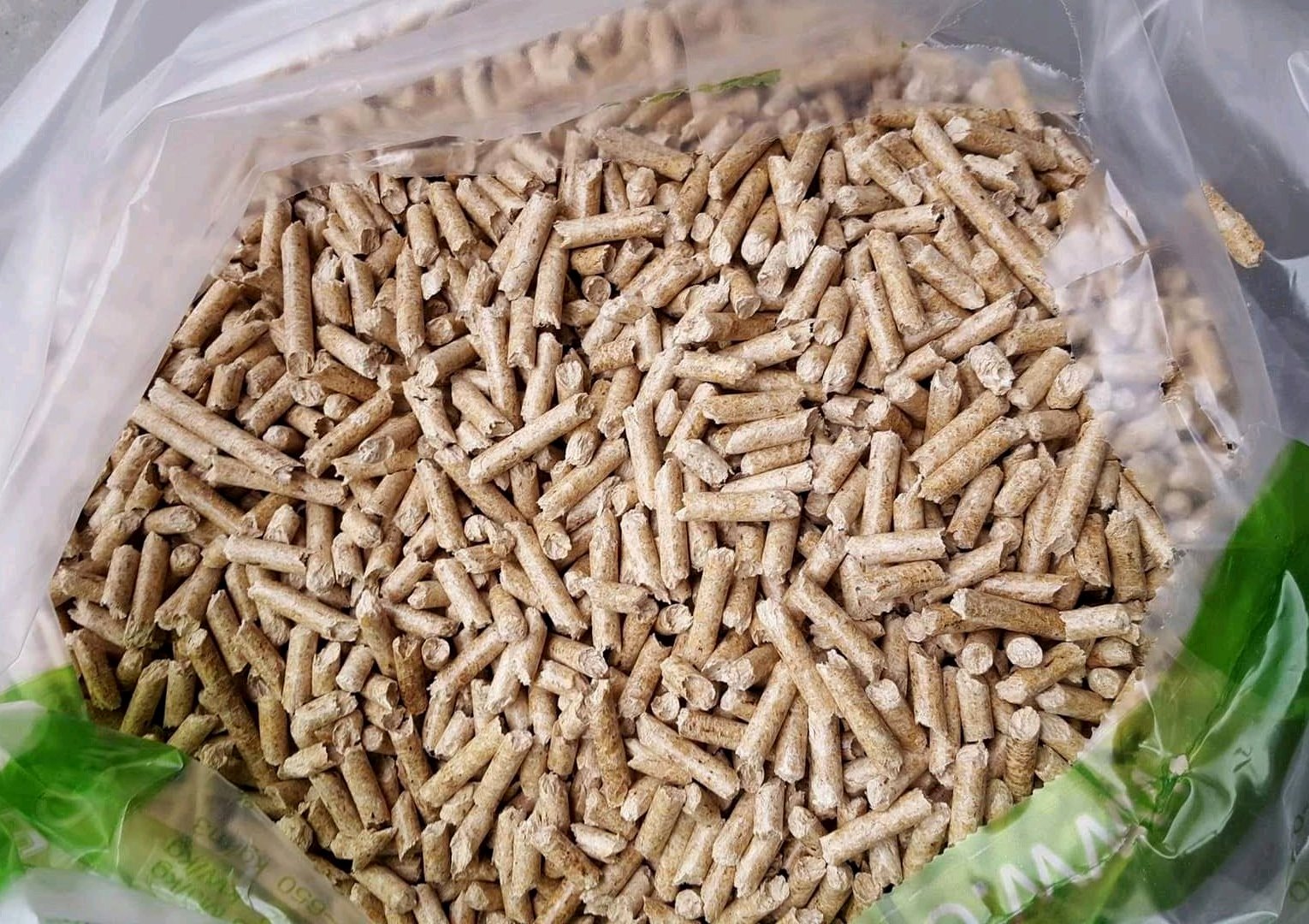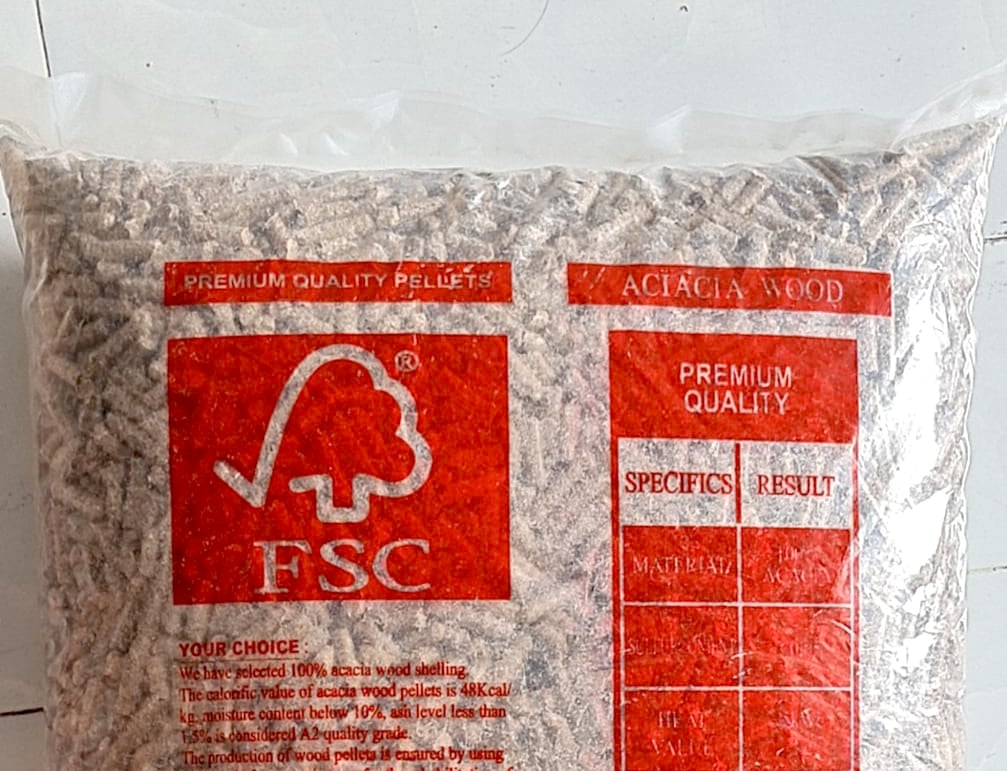November 26, 2025 | 11:22 GMT +7
November 26, 2025 | 11:22 GMT +7
Hotline: 0913.378.918
November 26, 2025 | 11:22 GMT +7
Hotline: 0913.378.918

Vietnam is the second largest producer of wood pellets in the world. Photo: Son Trang.
According to the Vietnam Timber and Forest Product Association, Vietnam has become the world's second-largest producer of wood pellets, trailing only the United States. The majority of wood pellets produced in Vietnam are aimed to be exported.
South Korea and Japan are the two largest importers of wood pellets from Vietnam, mainly for use as input materials for power generation. The volume and value of exports to these two countries consistently account for nearly 100% of the total exports from Vietnam to all markets from 2019 to the present. However, the export situation to these two markets has had contrasting trends in the first 6 months of 2023.
In the first 6 months of 2023, wood pellet exports to Japan reached over 1.16 million tons, valued at over 195 million USD, up by 5.65% in volume and 28.88% in value compared to the same period in 2022. During the same period, Vietnam exported over 840 thousand tons of wood pellets to South Korea, valued at nearly 116 million USD, a decrease of over 33% in volume and nearly 43% in value compared to the same period in 2022.
Although the import prices of both markets have significantly decreased in 2023 compared to the end of 2022, the decline in the South Korean market is much larger than that of Japan due to a considerable decrease in demand for wood pellets in this market.
As of June 2023, the export price of wood pellets to South Korea is approximately 105 USD per ton, a 43% decrease from the peak price of 185 USD per ton in December 2022. Conversely, the export price to Japan is still close to 153 USD per ton, a decrease of less than 18% from the record high price six months earlier.
According to Dr. To Xuan Phuc from Forest Trends, the Japanese market is more stable compared to South Korea, with long-term orders (purchase contracts usually lasting 10-15 years) currently being exported at prices ranging from around 145 USD to 165 USD per ton (FOB price).
In addition to long-term contracts, some Japanese companies also engage in short-term contracts with certain Vietnamese suppliers. The prices of short-term contracts are usually lower than those of long-term contracts (currently around 125 USD per ton, FOB price) while maintaining equivalent quality to products produced under long-term contracts.
The demand for wood pellets in Japan is forecasted to increase significantly in the coming years. Information from some businesses indicates that Japan currently uses about 8 million tons of wood pellets annually, with 40-50% consisting of palm kernel shells and the remainder (50-60%) being wood pellets. It is expected that by 2030, the demand for wood pellets in Japan will increase to 20 million tons, with wood pellets accounting for about 13-15 million tons (the rest being palm kernel shells).
Therefore, it can be observed that the Japanese wood pellet market has higher sustainability compared to the South Korean market. This presents a significant opportunity for Vietnamese businesses, especially those with stable input materials and sustainable certifications, as well as large-scale, well-managed production facilities.
The divergent sustainability trajectories of the Japanese and South Korean wood pellet markets illuminate a pivotal opening for Vietnamese businesses. Those committed to eco-friendly practices, possessing certified sustainable materials, and equipped with efficient manufacturing capacities can strategically leverage this opportunity to tap into the burgeoning demand for sustainable wood pellets, especially in markets with stringent ecological prerequisites. As global environmental consciousness continues to grow, such enterprises are well-positioned to make a significant impact while contributing to a more sustainable future.

Tablets manufactured from FSC certified wood. Photo: Son Trang.
If wood pellets exported to South Korea are primarily made from wood residues of the wood processing industry, such as sawdust, wood chips, and surplus wood scraps, then the wood pellets exported to Japan require a source of domestically cultivated wood with FSC certification. This type of raw material is only available in areas with extensive planted forests in Vietnam, particularly in the Central and Northern regions.
In addition to areas with FSC certification, Vietnam has established a national forest certification scheme (VFCS) that is officially operational, providing VFCS/PEFC-FM (forest management) and VFCS/PEFC-CoC (product traceability chain) certifications. This standard is considered suitable for Vietnam's practical conditions, although it has not yet gained recognition in the importing market, including Japan's approval. Therefore, wood industry businesses are urging Vietnamese regulatory authorities to promote Japan's recognition of wood pellets produced from wood with PFFC/VFSC CS certification.
Translated by Nguyen Hai Long

(VAN) An Giang promotes supply-demand connections, standardizes quality and builds value chains, creating a foundation for sustainable bird’s nest development and aiming to expand exports.
/2025/11/24/5339-4-nongnghiep-075331.jpg)
(VAN) Recently, the conference on 'Sustainable Fisheries Linkage Chain - Tilapia for Export' took place in Tien Hai commune, Hung Yen province.
/2025/11/21/4309-2-153400_128.jpg)
(VAN) Green and low-emission rice is paving the way for Vietnamese rice to enter high-end markets, marking the beginning of a transformation journey toward greening and elevating the national rice brand.

(VAN) ‘Right to Win’ outlines a national action plan that shapes a new vision for Viet Nam’s agriculture in an era of renewal and global integration.

(VAN) Lam Dong’s farmed sturgeon output this year is expected to reach 2,300 tons, worth VND 450 billion, affirming the brand’s position on the market.

(VAN) A surge in Ukrainian egg exports, largely driven by soaring sales to the UK over the last few years, has notably pushed up egg prices on the domestic market.

(VAN) The price of Arabica Catimor coffee in Quang Tri is currently at VND 25,000–27,000/kg (fresh cherries), the highest level ever recorded